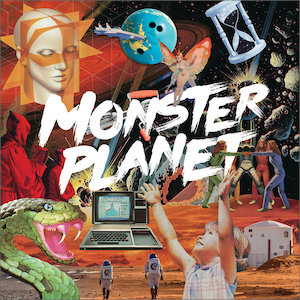A poignant and emotional human adventure between great times and tragedies which the central theme is always Love.
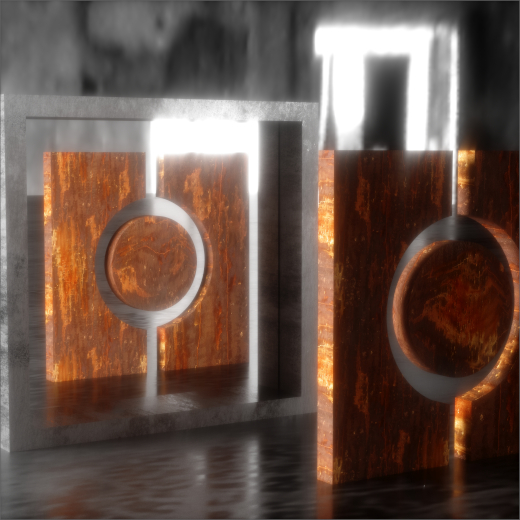
A poignant and emotional human adventure
In his 15-year career so far, Jodey Kendrick has produced over 40 albums via various monikers (+10, Black Narcissus, Lord Of The D or Roleplay for the most recurring ones) on renowned IDM labels such as Rephlex, Wémè or Clone but also on his very own Electric Dance Music (aka EDM) imprint.
Although regularly in demand, he has turned down every single interview and most gigs until today but still wishes to remain faceless. More than just a collection of great tracks, the EDM journey was plagued with the passing of his wife Heidi in 2017 and that of close family members soon after, turning this project into a poignant and emotional human adventure between great times and tragedies which the central theme is always Love.
Igloo :: What was your musical background as a child and teenager?
Jodey Kendrick :: No academic musical background. I have a brother on my mother’s side that I didn’t get to meet until I was 16 but I was really brought up an only child so I was left to my own devices, you know? And my parents were working in a pub. So, for 16 hours a day, I was basically left, not on my own, but left to discover the world without any siblings, and my dad used to be into film and stuff, and I just remember watching VHS’s and hearing these mental tunes from stuff like John Carpenter and that. And as soon as I heard that, from a really young age – I was only like 8 – I wanted to do that. That’s all I ever wanted to do.
Do you have any specific films in mind?
Yeah, of course, like, Assault On Precinct 13. First piece of music. I don’t know what happened, because obviously, there was loads of music about in the charts that I’d listen to and that, but nothing touched me like that. This one seemed to go straight to my soul and it was just like: “That’s all I want to do! I want to do that but I want to do it a little bit faster.” (laughs) And then the next film—I can’t remember which one was first—was Dirty Harry, the soundtrack by Lalo Schifrin. You know, the breakbeats, the jazz-funk. And it was just like “Oh, my God!” It had the same effect as John Carpenter’s stuff.
What year was all that?
I was 8 years old, so I guess that was like in 1986-1987. They never left me those tracks, you know. They came in and stuck with me, I could replay them from my memory. Obviously, I’ve got all this stuff on DVD and on streaming now because it’s my lineage almost, but yeah, they stay with me. And I think the third track was when I was a teenager. Because I was living in a pub, my parents used to have a jukebox for the customers and they’d get sent through everything that was coming out into the charts at the time, and obviously, it was a suburban pub so there was a bit of electronic music in there and my old man would give it to me to play upstairs, just for myself—so I’d get them all! And one of those tracks was Humanoid: “Stakker.” That was basically the first acid track I ever heard and it was so different to anything I’d ever heard before. It sounded wrong—in a good way. That one I remember listening to with my mate and we were just looking at each other like “This is so wrong! I love it!” (laughs) I think if you look back at those three tracks that I’ve named, I did kind of end up sort of like sounding like a clash between them. (chuckles)
Is that when you started to make music?
Well no, that was a couple of years after that. You know, with the advent of home computing like the Commodore 64, I just started tinkering away with these basic crappy music programs, nothing serious. And then, when the Amiga came along, you know, trackers and stuff, it became more serious. I just came into it that way, just from the love of music, you know, wanting to do it. And then, at 16, I started working and I was able to start buying real music equipment and that’s how it went, just really natural. I did music at school and stuff but It wasn’t the kind of stuff I wanted to hear. (laughs) But that’s how it worked out: tracker and then I started buying hardware. And completely self-taught, just learning to do it on my own.
How has your setup evolved over the years?
The tracker stuff I did back in the day didn’t even get recorded. It was just playback on the Amiga and stuff. Then, instead of going into computers, the first sort of equipment I bought was an [Roland] MC-505 and a VP-9000, that Roland sampler with a VariPhrase. It was very expensive but I was working so I could get these things. I just added to that synths and a mega load of hardware stuff. This is where the practice came in—none of this stuff was being released—and I would just practice for hours and hours and hours. I gave up on my social life, which had to be done: if you want to get good at something, you’ve got to make a sacrifice. So I did that. And then, eventually, I think about a year before I met Heidi, I just bought an Apple PowerBook and I started getting into the computer side of things.
Which of your synths was your favorite back then?
The Sequential Six-Trak. Such a lush synth, mate. So overlooked, you know. It’s beautiful. Even now, I’ve still got that synth. It’s basically a polyphonic synth from Sequential and it’s got quite literally a one-knob data entry and it’s all buttons and everything, which really puts people off, but geez, Christ, the sound on that thing ! I mean, it still canes the modern ones now and it’s a relatively cheap synth. It’s a bit of a secret weapon synth, you know. Fantastic ! It’s only got a mono output but so was the original Prophet-5.
So, once you got the Apple PowerBook, I guess you started working with VST plug-ins.
No! (laughs) No, no! It was so crap and underpowered. This is where I start messing with audio, starting to learn how to do these mad edits and stuff and that kind of thing. The computer literally wasn’t powerful enough to run even one VST, so it’s a combination between laptop for the drums and stuff, and everything else for the other sounds. I was using it in tandem, all together instead of just purely doing the computer thing. It was only when I got my first desktop Mac that I could start using all this fancy stuff that I’d never used before.
Do you have other go-to pieces of gear that you’ve been using since then?
Yeah, like [Roland TB-]303, [Roland TR-]808, you know, all the staples stuff. I’ll never get rid of my ARP Odyssey. It’s the one without the keyboard that you have to make, but it’s so lush, it’s just cream. The FM stuff that you can do is just mental, but you know, I’m always using newer pieces of gear that I really love, like the Moog DFAM. That thing is the techno machine. It’s just so lush, it’s so basic but so fun ! I’ve got expensive stuff like [Sequential] Prophet VS’s and polysynths. I’ve got a modified [Roland] JX-3P. You know, all this kind of stuff… and effects!
With all this outboard gear, are you still using virtual stuff at all?
Yes, of course! I won’t rule anything out. I love everything. I’ll use [Native Instruments] Reaktor just on its own, like standalone, for an album or a track, I don’t mind. If it fits what I’m trying to do, they’re all tools and I’ll use them all. And to negate any is silly, you might as well use everything. It’s all good ! You can make music out of nothing now and that’s so wicked. You don’t even need synths. I rule nothing out, I’ve got no pre-fixed ideas. It also depends on whatever genre of music I’m doing. All depends on that. I’ll use real instruments, a voice, anything… drunk Dunstable street violence… (laughs)
I’ve checked out pretty much everything you’ve done, tried to count your albums over 15 years and it was like 42 or something…
Isn’t that crazy? Yeah, it’s crazy, mate.
Especially because you only started in 2007 with a couple of EP’s first, and then the Grace and Favourite Colour albums (all as +10 on Napalm Enema Records – ed.)
Yeah. And I’m proud of everything I’ve done but that’s kind of forgotten… At the time, I was trying to go for, like, a Chicago vibe. Also, I wanted whatever was on there. Like a hope that if Ron Hardy was still alive, he would have played some of it. (Laughs) That’s literally, how I did it.
Has Aphex Twin had much influence over the stuff you’ve done?
Not so much that one. But I knew of all the Aphex stuff and all that. So for other stuff, for sure, you know. Yes, definitely.
And did you ever hear back from him about your stuff?
Nope. Never met.
Yet you joined Rephlex in 2009. How did that come about? Did you get in touch with them?
I had a MySpace page. We’d already met each other!
Yeah, we met each other in December 2007, mate (Jodey had contributed a track to my György Ligeti Tribute compilation project in July 2007: +10: “Micropolyphony” – ed.)
Yeah, I think it was a couple of months after we met. That was the MySpace days, dude!
I know, it’s crazy. All the people who met there…
It’s bonkers ! So anyway, yeah, I just got this random message on MySpace: “Hi, I’m from Rephlex. Would you like to do a record with us? Or some records with us?” I’m like “…Yeah!” (laughs) And that was that. Like, literally, you know, that was it.
I suppose that was Grant (Wilson-Claridge—head of the Rephlex label – ed.)?
Yeah! Under another name. (laughs) He was under the radar. And the stupid thing… I was a total noob then, right ? I had all these tracks. I think I sent him like 400 tracks or something. On CD!
400 tracks?!
Yes, it was something stupid like that. And I gave them to him, but the thing is, they were on CD and he was like “Oh, I really like track 7 on this one,” but I didn’t know what he was talking about…
Oh my God…
(laughs) So he had to go through it all, like, to listen to them all and get the actual names, and those tracks that were picked ended up being both Rephlex albums, Plus 10 and Steel Erector—all the tracks.
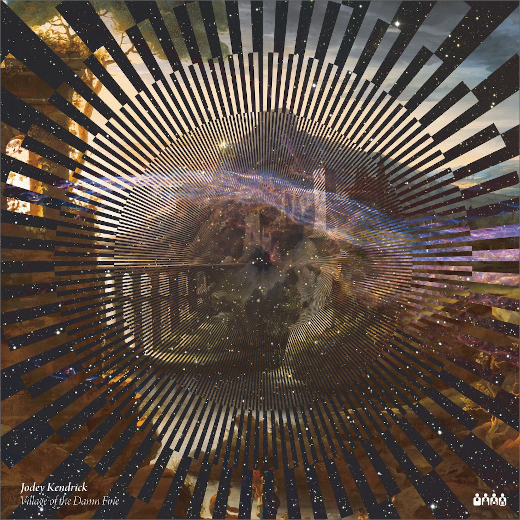
Do you have a specific routine you follow in the way you come up with tracks?
No. Not anymore. Mate, everything was premeditated at the start, but now, it’s become such a natural thing. It’s like symbiotic with my life. No, it changes all the time. Sometimes, dgoHn —the drum and bass guy and one of my best friends—comes up and stays with me sometimes. I’ll be like: “Oh yeah ! I’ve just made this track in Reaktor! This is the way I’ll work, like, for ages!” And then, once it’s done, I’m not gonna use it anymore. (laughs)
You did the Kunst album together in 2017; how did that come about?
Oh yeah ! We met at Bangface the first time and we just hit it off straight away. I wanted to work with him and he wanted to work with me. And it’s just natural, we’ve become best mates. I loved doing that album with him. I think it’s awesome. Just a bit gutted I didn’t do a bit better, but, you know. We’re totally different people but we get on so well and it is a pleasure to do something with him, and we’ll do something again in the future.
How did you do that album? Over the Internet?
Yes. I mean, we met up on occasion to listen to what was going on, but the really funny thing is dgoHn is the slowest producer in the world… and I’m super super fast.
He makes really fast tracks, though.
Yeah! So I was giving him, like, the gamelan parts and some rhythm, and then he was going away and taking like two months (laughs) just to do one little bit. And all that time while he was doing that, I’m making other stuff, like, I’m doing EDM, you know, So we were like that and it was just a very, very long, drawn out thing. And he would laugh if he heard me saying that but it was still great at the end of the day. He’s very meticulous, which is cool. But it’s too slow for me.
Let’s talk about the main monikers you use. Do they all represent something different to you? Say, +10, what was that about?
That came from an 808 State track called “10×10”. I just changed it to +10, and that was that. But mostly, I had so many tracks, it’s not uniform, it’s just me having fun. But anything that Heidi’s voice was used in got attributed to Heidi as the artist, you know, you dedicate it to the one you love, so anything with any other voicing or anything that she did, I’d put it under her name.
So everything on the Heidi Lord album, English Electric (2014), has her voice somewhere in it?
Yeah, a voice or anything about being at the hospital with her. All the English Electric stuff is referring to that. All those sounds are taken from the hospital, from the wards. You know, we were there for four years or something, on and off, so I spent a lot of time in a hospital with her. Everyone knew us and Heidi was always talking to everyone so they knew I was into the music and they were perfectly alright with me taking a recorder in and sampling MRI machines, all the scanners, the radiotherapy rooms and all this kind of stuff. Really, really, really close to the bone and everything. But you know, we were always trying to do something creative, returning a bad situation.
Wow, you really made this album together.
Yeah, yeah. Even if I did most of the bits and stuff, it’s her album at the end of the day. You know, Heidi got breast cancer, she fought it for four years and then they told her she was in remission. And it wasn’t. It went to her spine so she lost the use of her legs and I had to become a full-time carer. And we made it work. They gave her two months to live when she went into a wheelchair and she fought for another four years, so it was absolutely brutal but she was so brave, courageous. And I’ll never be the same. I couldn’t have designed a better wife myself, but I ended up in a position where there was no stone left unturned: by the time Heidi died, we’d talked about everything, the worst things that a husband and wife can talk about, what was going to happen after she’s gone, and that was one good thing going over a period of four years. Some people just lose someone suddenly and then are just left with questions. I couldn’t see a way that I could live without Heidi, and I told her, and she was just dead against that. So I’m going to finish what I started here and that’s the way it is.
I hear you. Around that same time, you did Black Narcissus.
Yeah ! So, Black Narcissus is all hardware, there’s no computer. That was the vibe. We’d just moved into a new house and I had lockable space and I connected all my synths together and just jammed and jammed and jammed and knocked out all this Black Narcissus stuff. That’s how that came about. But yeah, that’s why I used a different name.
A bit of a Drexciya vibe.
Yes, totally, totally! That’s all I was doing! I was just having fun! And a lot of them were like one take, no editing or anything. It was about the vibe when you do it. It’s about the journey, not the destination.
So that’s not a reference to the 1947 film by Powell & Pressburger? Have you seen it?
Oh, of course, man! I’m a mental film buff. You and I could talk for like a week about our favorite stuff, and I’m very knowledgeable: I love world cinema. Everything’s got gold in it.
Then you did Roleplay, I guess that’s your hybrid 70’s funk stuff.
Yeah.
…and I take it Lord Of The D is most probably the jungle tracks.
Yes.
…and then you have like, French Police. How did you get that name ? (laughs) Did you have an episode with French cops?
Well, how did I come up with that ?! You know, sometimes, I’ll just go at it without an idea. That’s kind of how French Police came out: just jam it out and see what you end up with. I’ll give it to someone to listen to, maybe my go-to quality control person that will remain unnamed, and they’ll go: “You should release that“—and that was it. I did it to sound like it was a band! Maybe it does not sound like it’s a band, really. That was the idea, though.
I can’t be in the same place all the time, it’s boring, you know, you can’t do that. You just get jaded. I just need to always be moving. I always kind of circle back, I don’t really go away from something, I’ve not left it for good. At one point, I’ll come back to it. And I’ll come back to it hopefully more knowledgeable and go again and make that little bit better, but the cycles, they’re still going, man, like, I’m still on it, you know. It’s wicked, absolutely wicked.
What does making music represent to you? Do you think it’s a way of letting go of reality, exploring yourself? Things like that?
Yeah. Yeah, that’s a brilliant way of putting it. For me, when I first started, I just wanted to do something good and give a good account of myself. As it’s gone on, obviously, it’s become more and more important, to the point where it’s like life support for me. I can’t exist without it. But basically, what I’m actually doing is I’m going off into my head, into my own self-made universes and just fly around in them, and once I get bored of one, I’ll create another one. It’s a beautiful thing, you know. It’s like, the way it’s grown from the beginnings to how I feel about it now. It’s no understatement to say this: it saved my life. I’ve got a big imagination and that’s probably one of my biggest strengths. I love going there. When I’m in there, there’s lots of people with me in my head, you know, people that are not here now. So that’s where I’m at my happiest, I think.
Would you say that it’s always fun to make or that it’s sometimes emotionally trying?
No, it’s always fun to make. It always should be. And if it’s not, then, you know, maybe it’s going to sound shit. I mean, I’ve been angry and made tracks, like that “GEA” thing on Wémè (2015 – as J.K. – ed.)
Were they all angry tracks?
Yeah, they’re nasty. You know, I can make things angry. But the good thing is I’ve got it out my system and then I can just carry on. But that was a fair while ago and I’ve not really done anything like that since. Yet!
It’s interesting what you just said, that there are lots of people with you. Are you referring to the departed? People you’ve known? Is that what you mean?
Not just them. Not just the departed but everyone that I love. Do you understand that? Alive or dead. Even friends. I don’t know what it is. Like, Heidi’s in my heart, she’s with me wherever I go, and for the music thing, she’s sat next to me every time, every time I’m doing anything, with all these other people that are either here or not here, and it’s just one happy family inside my head. And that’s what it really feels like, that’s the only way I can describe it, you know.
Would you say it’s cosmic or something?
No, I wouldn’t call it cosmic. But I feel them.
You feel like they’re in the room with you while you’re making the music?
In my head and my heart.
And so it helps you express yourself?
Yes! Yes, yes.
If you didn’t feel that presence around you, would it be harder for you to make tracks?
Well, yeah. I mean, I’ve never had that. I don’t know what it would be like.
So it’s a constant thing. You’ve always done it that way?
It’s a thing that’s grown and grown from the very beginning. It started off very, very small. But now, it’s such a significant part of it, it’s always there with me and I couldn’t do the music without that. But it’s something that happens, you know, it’s like going to bed and having a dream. It’s kind of like that. So it’s not something you feel all day, it’s something that you tune into. Yes. As I’m making the track, I can feel it.
You turn the synths on and… it happens?!
Yeah, it happens, I start doing it.
Do you think it’s a feeling that will be even more present over the years?
It gets heavier and heavier in my life. It became more omnipresent. And now it feels like a natural thing. Just my brain accessing information and stuff and thinking about things. But, you know, you want to put emotion into music.
On average, you seem to be more prolific and release always more tracks every year. Do you think it is linked to it?
Yeah, I’m sure it is. I wouldn’t say it gets easier, I’d say that I just know myself better. With experience comes improvement, right ? And I just think it’s like that.
Living the 70’s life with all these technologies ::
Do you have other hobbies besides making music? Or other artistic aspirations?
A lot of poetry. Sometimes I write it. I have written stuff. I give it to my mates and they either cry or they laugh (laughs). I exercise a lot, I’m quite healthy, watch loads of films—total film buff, always listening to music. I’d rather listen to music than watch telly, there’s nothing decent to watch. And I go to the countryside and walk a lot, that’s great fuel for the imagination, especially when it’s just you and the hills and the wildlife, it’s just great fuel. I try and lead a really simple home life as well, that’s really important. If you’ve got everything going on all over the place, it’s gonna get you in the end. (laughs)—I like to keep it simple, I’m a really simple person when it comes to living. Since 2000, it’s kind of just turned into this dream sort of thing. The Internet is out of control and now it’s eating itself. That is kind of what it seems like to me. That’s what I mean about the simple life. I mean, I couldn’t even operate this Facebook Messenger, it took two people to help me out with it to get it ready for you. I just hate it. (laughs) When it comes to music technology, it’s a whole different story. I live the 70’s life with all these technologies, it feels normal to me. Obviously, I’ve got friends that are like gadget heads and stuff with mobile phones glued to their faces. To me, that just looks sad. They’re missing out on the magic.
You said you were listening to a lot of music, what would you say are your favorite electronic and non electronic artists and albums?
Oh, Jesus, too much! Everything Ron Hardy played. I think the only thing I’ve been listening to a lot lately is Etta James. Because it’s summer, I’ve slowed the tempo down. A track called “All The Way Down,” and also “I’d Rather Go Blind,” stuff like that. And then The Fall—the Manchester band, hip hop, Beastie Boys, all this kind of stuff and just basically loads of disco and funk. I love Miles Davis. I love the Jack Johnson album. I’m always listening to music and it’s always changing. I went through a stage of Chicago house music, Green Velvet. It’s constantly changing, mate, I can’t have a favorite, I just like so much, it’s impossible for me. But, you know, soundtrack albums, I love Roy Budd, he’s great, I didn’t find him until after I’d done Lalo Schifrin. He’s up there with him, maybe even a bit chunkier, the beats are a bit meatier. He did a loads of soundtracks for some mediocre films. The soundtracks are so, so good. So yeah, really lush. Yeah, tons of stuff. I wish I could just flip off the names! I’ll send you 10 tracks that I’ve been listening to randomly:
- Etta James – I’d Rather Go Blind
- Velodrome – Glasfabrik
- Gil Scott-Heron – Lady Day And John Coltrane
- Diana Ross – Love Hangover (Re-Edit)
- Etta James – All The Way Down
- Information Society – Hack #1
- Lalo Schifrin – Shifting Gears (Bullitt Soundtrack)
- Pyrolator – Happiness
- Thelma Houston – I’m Here Again (Mr. K Edit)
- Index – Starlight (The Break)
Would you consider scoring a movie?
Fucking of course! That’s what I’m in the game for. I can’t believe it hasn’t happened already. I’ve done so many fake soundtrack albums. And what I hear in movies now is shit mostly. And, you know, I could do a much better job. And cheaper. (laughs) I’d love to do that after EDM, it would make my life complete to do that. I’ve always wanted to do that. One of my tracks from Mount Vernon got used by a guy called Ctrl Shift Face. He does deep-fake videos and I started noticing on Bandcamp that the track that he uses in the video was being sold shitloads. Then I eventually found the video, he credits me in the video and everything. It really fits well. It’s a really nightmarish type of video. Yeah, really lush. You know, the music I make really suits that.
Talking about graphics and such, how about the artwork for EDM? You’ve come up with a logo, is it supposed to represent anything?
Love. The two rectangles being humans and the circle, the connection. But also, it looks like a weird abstract H. Obviously, Heidi, you know. But yeah, it just means love and I must credit Marco D’Arcangelo. He does a lot of the graphics for me. He’s awesome. I’m looking at the actual one for the last EDM now and it’s the most beautiful out of all of them, like, it really is. It’ll be a lovely piece of artwork. I’d actually like it as a picture as well.
So you came up with the logo but he came up with the alterations.
Yeah, most of them. He did the really beautiful-looking ones and he actually did the first three Roleplay albums as well. He’s lush, man. You know, we’re like family, I guess. We get on so well. It’s always awesome.
How do you approach new additions to your EDM catalog?
I don’t think about how it matches whatever I’m doing at the time. And then, obviously, I send it to the Quality Control. And they’ll say yay or nay. And then, we just go with it. But it’s mad. It’s like, EDM U is
finished now. It’s all done. How it’s gonna come, it may be coming on vinyl this time, but I’m not quite sure yet. It may be out next week, I’m not sure. You know, there’s only five more left after that.
After those, what will happen?
Many people have asked that question. I’ve given them ridiculous answers, like, I’ll do a King Tubby and I’ll smash all my equipment up and bury it somewhere (laughs) or I’ll just become a country and westernized. (laughs)
You can do anything you like.
I’m probably going to carry on but EDM will be finished. The other thing that’s important about EDM: when I first started, there was never any pressure, but now we’re like five albums away from completing the whole alphabet, I do feel a little bit of pressure to complete it. But it will be fine. I’ve got the next one in my head. I’ve even got the hardware out that I’m going to use.
What was the point originally? You wanted to do all the letters of the alphabet?
Yeah, that was the point.
But I think there are some letters missing.
They’re all there… but H and J, we didn’t use them—because of what happened.
You didn’t want to have them linked to it…
Yeah. But they are, they’re still part of it. It’s just that we didn’t really use our initials and the Quality Control didn’t think that was a good idea.
The mystery quality control person…
The mystery people. They were cool with doing it. It was their idea, actually, I just went along with it.
So you don’t see EDM as one of your monikers?
No, no. It’s a label, right?
Yeah. But there’s a point into the discography where the line blurs. At first, it started with “various artists” with a bunch of different names, and then, at some point, it wasn’t “various artists” anymore. So I thought maybe you’d just adopted it as being your name in the end. Do you see what I mean?
Yes! But it’s a label. Only one that is multi genre. Obviously, Lord Of The D is on there now, and things like that. It may well go back. I mean, the last three may go full circle all the way back to the beginning again, but it has to be done right. The last one has to be, you know, the best one. I’ll try and do that. Heidi used to handle all the other stuff, when we were releasing hardware releases on EDM like the first 2 CD’s, the vinyl special editions, that was all Heidi, she was dealing with the record industry, with the labels, distribution and all that. She was brilliant at it!
So when you do things by your own name, Jodey Kendrick, does it mean something even more personal to you?
Erm… No, not really, not at all, because I’m not into the personality thing. Literally, it’s always been about the music. I’m not putting my face because I don’t believe in that, you know? I know I’m in the minority saying that but I’ve never given a shit about that, that’s why I use stupid pseudonyms and all that, it’s just like trying to get my point across purely from a musical way. But the Mount Vernon album on EDM, which is about Heidi fighting cancer, that was under my own name because that was such an important album for Heidi and for me. The other ones, they’re not under that name or they’re silly names. I can’t be arsed coming up with anything. (laughs) The [S]hortwave album (2021), that was under my name because that was a really big project to do and the fact that I actually got played on Shortwave for their debut was mental. I want to do that again.
The guys that man the Quality Control got to put that broadcast out on Shortwave and about two weeks after it went out, I got an email from Quality Control with all these YouTube videos that have people that just happened upon it (laughs) and gone “What the fuck is this?!” There was loads of messages from people all over the world like “What was that on at this time ? We’ve never heard that!“—so it was pretty mental. I mean, it was low key. Stuff like that is magic. You can’t buy that. It’s just lush. It was really funny and really surprising ! Shortwaves are brilliant. It’s like vinyl, it’s all crackly and nasty but there’s something about it. It’s like more human or something like that. It’s like looking through a telescope, there’s just something lovely, old-fashioned about it. Yeah, the more serious ones are usually under my name. Whatever Quality Control say! (laughs)
Actually, the fact that you’ve remained mysterious about everything, people have kept coming up with all kinds of fantasies. That must have made you chuckle a bit.
Yeah, it did! Some people just go right out on a limb. They’ve got no fucking idea—but they will just write it on the Internet. You know, I used to look through that. I’d be sat there doing a track and Heidi would be like “Oh, you should read this” and I’d be like “Oh go on and tell me then,” and they’d be like “Oh, we think he’s…“—you know, that kind of thing, or they’ve made statements about me. Once, there was some fucking video or something and they were like “Oh, they must be Jodey Kendrick’s kids!” And I’m like “Where do you get your fucking information from, mate?“
At the same time, it’s kind of flattering in a way.
Yeah, it is.
I’ve read stuff where people thought that you didn’t exist even, that you were actually the creation of two other people because they could hear a bit of this and a bit of that and thought that it made sense. “It’s a collaboration. He’s not a real guy. Besides, he’s not showing his face.”
That’s exactly what I wanted, you know: to be a ghost.
So the mystery was a deliberate decision?
Yea, to be a ghost, that’s exactly what I want. And still, to this day, some people still don’t believe that, which is fucking… That’s good!
And there’s the whole Steinvord thing, as well…
Yeah. That’s pretty funny, obviously, that is. It just makes me laugh, mate. It really does. And you see people having like full-on arguments between themselves, and it’s just fucking music, man. Just enjoy it or don’t enjoy it. You don’t need to have a fucking discussion about it. You know, it should be enjoyed, right ? If you did that about every single guy, your life would be a fucking mess. Don’t get me wrong, though. Those last five years, there were messages from people that I don’t know, like encouragement. It was not so much about the music. Just random people: “Hope you’re all right,” you know, “Like your stuff,” and it’s just little things like that that just.
Communicating with your subconscious ::
People just enjoy your vibe, I guess.
I’ve managed to have a thing where I’m not sure you can tell it’s me if you’ve heard it without knowing that I made it, but there’s certain things that I do now… I think that’s got stronger as I’ve gone on, sort of thing, and I’ve got some kind of vibe. I’m a little bit off. And I think that some people like it or something, but yeah, I’ve got a vibe. Definitely.
There’s something that is you that comes off. And you throw people off when you start going into ambient or funk and stuff. And it’s kind of odd, because when you do, you have this other vibe. Like, the Roleplay stuff sounds like nobody else but it doesn’t sound like your other stuff either. It just sounds like another side of you. It has its own feel.
Oh yeah. Oh, I listened to it the other day for the first time in a year. I’d forgotten how I made it on a keyboard. You know, when you forget what you’ve done and you just listen to it on musical value only? And I just really fucking enjoyed it. It made me feel really happy. And that’s the best thing, right? I mean, it’s different. It’s not everyone’s cup of tea. You know, I’ve had tracks played on [BBC] Radio One, yeah ? And they’re shit. I mean, they’re not shit but they’re some of the most boring tracks I’ve ever made. The actual absolute fucking gold that’s in there, they didn’t play it. It’s fucking bonkers, mate, it’s totally upside down. The people that pick the tracks at these stations, they don’t know their arse from their elbow, you know, they don’t got a fucking clue. That’s the way it is, dude.
Some of your tracks are probably more accessible to most people, don’t you think ? Like “Lo Pan” (2013 – by Heidi Lord), for instance, not too tricky or weird and still really haunting.
Oh yeah! That’s Heidi’s vocals on it. We loved each other’s stuff and we were both mad John Carpenter fans, and she loved the character Lo Pan from “Big Trouble In Little China.” The track is actually loosely based on a track from the movie called Here Come The Storms. John Carpenter—he’s the reason I bought a Prophet VS. Because that’s what he used for that soundtrack. That and the Arp Odyssey are John Carpenter go-to synths. I mean, yeah, I’ve got some play and stuff, but you know, it’d been better if they would have actually picked the better tracks! (laughs)
On an album, every track is never going to be a banger, you need to change a little bit, you can’t just go all out. I mean, you can, obviously, I mean, I have… but that’s because there’s an order that the album needs to be intense. But on a more artisty album, you don’t want to go hell-for-leather, you want to show your skills over different genres, tempos, styles… you want to do it that way. And everyone’s different: some people won’t like breakbeats, some people will only listen to them, you know, it all comes down to you—as long as you’re happy, you shouldn’t give a fuck about what others think.
You’re the only person you’re trying to please because you’re trying to find yourself through the music you make. You can go, like: “Oh, this is so me!“
Yeah, you’re communicating with your subconscious. And it’s a beautiful thing. And the more you do that, and the older you get and you keep on doing it, the more that becomes apparent, and the more beautiful, and the more magic, and that’s where I kind of… I mean, when Heidi died, I had to give up music for a year. I could not go on, I couldn’t press a button, I could not play a key. I just couldn’t do it. But thank fuck, you know, Grant motivated me to pick it up again. And you know, I did pick it up again and I thank him so much for that because otherwise, I was gonna be fucked. Fred from Wémè stuck by me through my darkest times. I had to go into a cave for a long time. And a lot of people went away but the good people stayed and I’m just so thankful for that. But he’s a real gentleman, he’s a lush bloke. Yeah, I’d love to share and do something with him gig-wise. I’m really up for it. You know, it’s time to give a bit back. I’ve been releasing tracks, not doing what I should do. I should be playing out, man. The last five years, I’ve been basically away from everything. It’s been a hard time, but now, everything is coming back on line, I’ve got my nervous system back in my body, so it’s onwards and upwards and I want to do all these things again and go again and do gigs and everything.
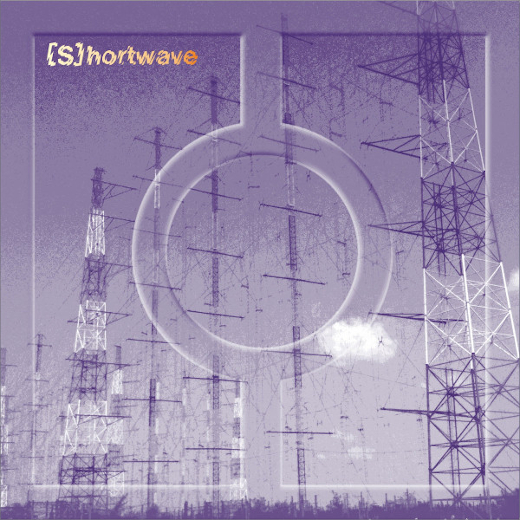
How about those live gigs then?
dgoHn was talking about setting up, getting an agent and doing a Kunst / EDM / dgoHn thing. Like, you know, together. We’ve played quite a few gigs together, so I’m gonna look into that this next couple of days, and then, hopefully, we can sort something out.
Have you got anything lined up in the UK?
Not at the moment. I mean, I used to get offers all the time but I just couldn’t travel. Everyone always asked me “When are you going to do a gig and that?” And I’m ready now, dude.
Is it the moving that changed everything for you?
It’s just that I’m in a place where I’m comfortable. It’s basically a fresh start. And I’m able to travel now, that’s the biggest, most important thing, you know. I feel confident, I feel myself and I’m ready to go back out and hopefully make people dance. And the other thing is, there’s so many tracks that I’ve never played out, I could play like an eight-hour set. (laughs)
Can you give me an idea of how much stuff you have that you still haven’t released? In hundreds.
Oh, Jesus. Sometimes there’s whole albums, like I did a live album with just a limited amount of hardware that is really nice. But it just never got released at all. There’s about 2000 tracks.
And you never dig into your stash?
No, because I always concentrate on the next one. Actually, Quality Control said that this will all be released at some point.
I’m surprised that you’ve never done anything with Aleksi [Perälä] because the two of you are insanely prolific.
We have! It’s just unreleased. We have like three albums. Because Aleksi used to come and stay with me like twice a month, we’d make like 6 tracks and then, they just built up and built up. They’re all there, we’ve done it. But it’s wicked, you know, in the studio, when it’s hardware, we’d just sit there and record the whole jam for eight hours, just sitting there and just jamming, with Heidi shouting “Turn that fucking down!” (laughs) We did that for so, so long.
So you never got into the Colundi thing?
No, that was Aleksi’s thing.
But he seems open to have people use his findings and Grant’s findings to use it. It doesn’t seem to be something that really speaks to you, does it?
No, no, it’s their thing. It’s rigid, you know, it’s not very musical in the sense that I like playing stuff on keyboards. So you know, it’d be hard to do a funk Colundi album, you know ? (laughs) But I will say that Kunst, the album with dgoHn does contain that, you can hear it in there. There’s a lot of Colundi sounds, the frequencies and everything. It’s a microtone album and there’s Colundi in it but it doesn’t sound like. But fair play to him for doing that though. That’s his thing, he’s been rinsing it for ages, man. You know, that takes strength for him to keep doing that because I’d just get bored, man. I don’t want to do that, I want to do a hip hop album. (laughs) I guess I’m more traditional in that way but when the heat ramps up n spring / summer, I just can’t stop doing funk. If I’m playing the keyboard over a backing track, I just end up playing and it just ends up funky. I just think that my variation comes in doing like one album will be braindance and the next one will be ambient or the one after that will be funk, you know, because that’s the way I like to do it.
I have the feeling that braindance should be the next big thing even though it’s getting kind of old now. I mean, I’ve always thought that, at some point, it would have to go mainstream because it’s the most interesting form of contemporary dancing blending breakbeats and electronics and imagination.
But I kind of like that it’s not mainstream. Everything that ends up going into the mainstream ends up coming back with shit on its face. (laughs)
That’s kind of true.
It’s beautiful how it managed to get its head out of the water. And maybe that’s a good thing because it’s still going. I mean, I know it fluctuates, like anything fluctuates, but you can’t wear it out because there’s so many different elements. And it doesn’t have to be this and it doesn’t have to be that. It’s something that is trickier to program than the odd pattern, you know? People cannot necessarily replicate it without practice. It takes things from everything, really. You know, everything goes. And I guess it has to be a certain way, but I just love the fact that it does seem that the things that get mainstream, they fucking die, you know. Even hip hop now.
The problem with hip hop is that it’s lost its meaning.
Yeah. And I don’t want braindance to lose its meaning. If it comes up on the airwaves, then there’s a danger that that might happen. People might say that I’m talking shit, but…
No, I mean, that’s interesting. What meaning do you give it? Do you give it one?
Yes, for me, it’s the most universal of all the electronic genres because there’s so much you can do with it. I don’t think it’s dried out yet. I still got ideas, you know, I’m still planning all the time. If I start making the next album, it will be working its way in the back of my mind. Lots of things can be braindance. An old school Chicago track can be so good. It’s really unique if you think about it.
I started listening to Meat Beat Manifesto in the early 90’s and, to me, that was already an early form of braindance with breakbeats and trippy sounds on top. There was something fuller about it, it wasn’t just a beat with a bass line, there was more stuff going on.
For me, listening to early Squarepusher and Rich (Aphex Twin) and people like that, it was a lot more hands-on than any of the other music. Aside from rap—at the time. The cleverness and the sharpness and these sounds and these time stretches. I was listening to traditional funk and soul and stuff like that, so hearing these new sounds was like, “Wow!” I wanted to know, you know, that’s how you learn and all that sort of thing. But yes, it’s awesome, man.
Let’s end this nice chat with some good news: your upcoming EDM album (U) is ready?
Yeah, U is finished. And it has a kind of concept to it. It’s braindance, there’s no beating around the bush. It’s like full-on braindance. There’s some real heavy tracks on it. There’s some funky tracks on it. It’s wicked, man. A lot of it is based around my love of an Amiga. I didn’t make it on an Amiga but I made it on a tracker. It’s really lush, man, it’s a bit of a hat tip to the 90’s but it’s got a modern spin on it. Oh, and Grace is coming out for the first time on vinyl ! A repress on Wémè.
Interview conducted by Christopher Mathieu on June 16th, 2022.
Village of the Damn Fine is available on Djak-Up-Bitch (DUB). [Clone | Juno]






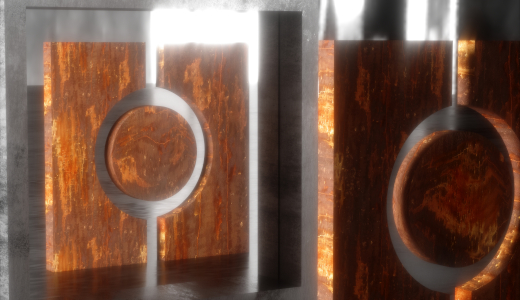
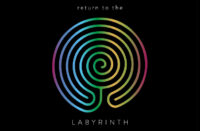



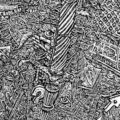
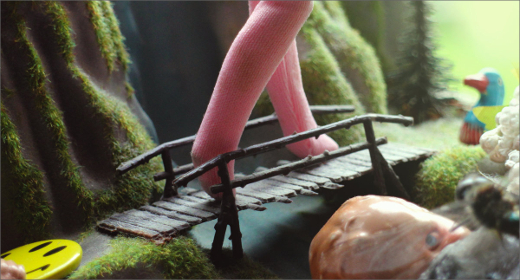
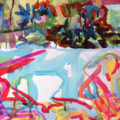
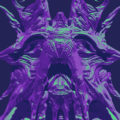
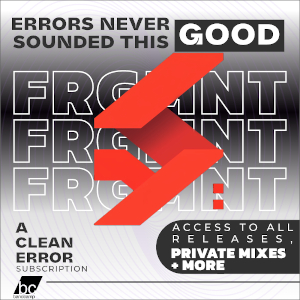

![Pole :: Tempus Remixes (Mute) — [concise]](https://igloomag.com/wp/wp-content/uploads/2025/04/pole-tempus-remixes_feat-75x75.jpg)






![Hasbeen :: Bunker Symphonies II (Clean Error) — [concise]](https://igloomag.com/wp/wp-content/uploads/2025/04/hasbeen-bunker-symphonies-ii_feat-75x75.jpg)
